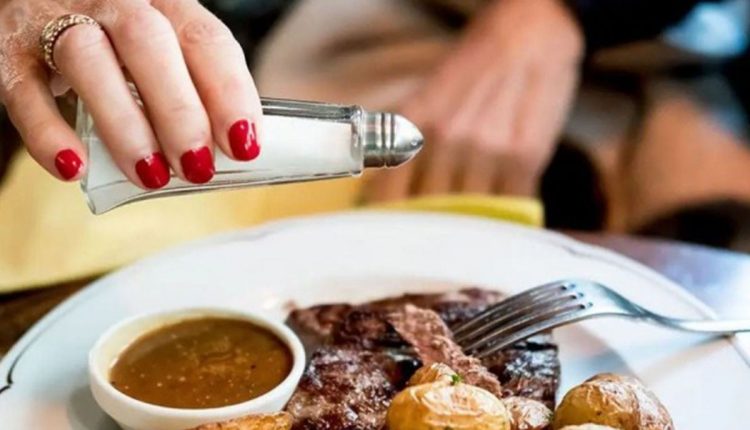
Effects of Eating Too Much Salt
I bet you didn’t know that 75 percent of the salt you take in comes from processed foods and fast-food-restaurant meals. And all that extra salt in your system isn’t good for you. As a matter of fact, the average restaurant meal has over 400mg of salt beyond the amount you’re supposed to have in one day. And that’s wrecking your body from the inside out. It turns out that you’re probably getting far more salt in your diet than you believe. The American Heart Association recommends a ceiling of 1500mg/a day on your salt intake, but estimates that you’re probably getting in about 3400mg. Let’s take a look at how all that excess (NaCl) salt affects your body
Harmful Effects of Salt
As much as one decadent, salt-laden meal can result in condition called edema. This isn’t’ dangerous per se, it’s just your body telling you to take it easy on the salt shaker (and for good reason). It presents with puffiness around the eyes and generally on the face, and sometimes even swelling in your lower back and down by your ankles. You can tackle this by increasing your water intake and cutting down on the salt for a few days. This usually affects the older demographic more than younger people.
This one shouldn’t come as any surprise to you, but you’re going to get dehydrated if you down too much popcorn or French fries. That’s, because the small mountain of salt you’re taking in quite literally sucks the water out of your cells. Your cells require a precise concentration of water to function effectively. And when you take in too much sodium without balancing it out, your natural physiology gets knocked off balance.
This is not going to be a good news to those French-fries lovers, but taking in too much salt can give rise to stomach ulcers. That is, because of the metaplastic changes in the stomach mucosa. Too much NaCl puts stress on the membranes and eventually wears away the healthy lining. What’s worse is that ‘The International Journal of Epidemiology’ documented a research paper that concluded a link between regular, high consumption of salt and gastric cancer.
Even just one sodium-laden meal can result in atherosclerosis, literally ‘stiffening of arteries’. This was proven in a research work done by the American Journal of Clinical Nutrition’. And these changes, which culminate in slowing down of blood perfusion and extra workload to the heart, can take place even half an hour following a high salt intake, especially since atherosclerosis is a major cause of increased blood pressure, over the years. We’ll make this simple. The kidney monitors the salt content of the body. If it finds that the salt content is too high, it releases a hormone that ultimately increases the Blood Pressure. Hence there is a direct physiological link between the amount of salt you take in and your BP. The higher your blood pressure, the greater the likelihood that you’ll experience incidents like heart attack or stroke, because your poor heart must work all that much harder to push against those resistant arteries. High BP is a silent killer, because it has an insidious onset and most people don’t check their BP regularly enough to realize that theirs is high.

